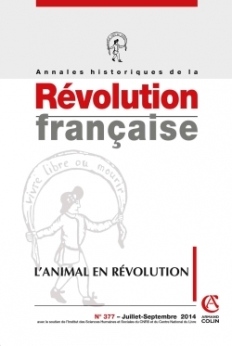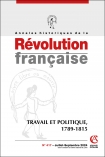
Annales historiques de la Révolution française n° 377 (3/2014)
Pour acheter ce numéro, contactez-nous
Recevez les numéros de l'année en cours et accédez à l'intégralité des articles en ligne.
The Muséum national d’Histoire Naturelle was represented during the Revolution as a site where the display of the proper images of Nature would help elevate public morality. At the Museum’s new menagerie, it was claimed, citizens would learn to behavior better toward one another if they saw animal nature improved through kind treatment, sociality, and the enjoyment of relative liberty. There was a gulf, however, between theory and practice. The desired scenarios were not easy to produce, and the conclusions that people derived from what they saw were not easy to control. Here we focus on the lions of the menagerie and the diverse and sometimes contradictory narratives and human projects that emerged in connection with them. While Lacepède suggested that a modern menagerie would be better without lions, the public wanted to see lions, the keeper of les animaux féroces wanted to show lions, and the government exhibited lions as testimony to France’s eminence and global reach.

